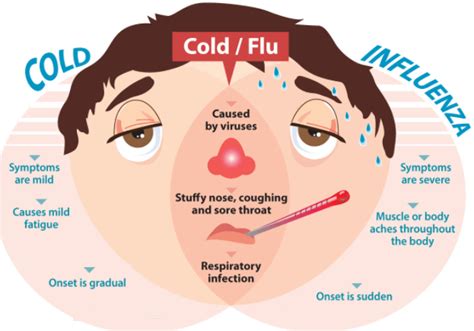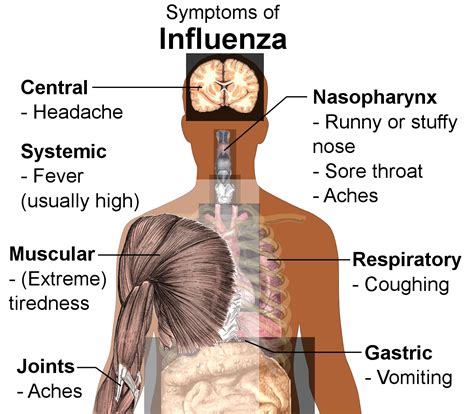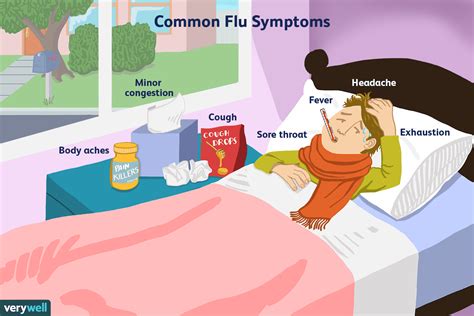Intro
Learn about flu virus vomiting symptoms, including nausea, stomach pain, and diarrhea, and discover how to manage and treat these influenza complications with effective remedies and medications.
The flu, also known as influenza, is a highly contagious respiratory illness caused by the flu virus. It can affect anyone, regardless of age or health status, and can lead to a range of symptoms, from mild to severe. One of the most common and uncomfortable symptoms of the flu is vomiting. Vomiting can be a sign that the flu virus has affected the stomach and digestive system, leading to a range of complications. In this article, we will delve into the world of flu virus vomiting symptoms, exploring the causes, symptoms, treatment options, and prevention methods.
The flu virus is highly contagious and can spread quickly through the air, contaminated surfaces, and human contact. When an individual is infected with the flu virus, it can take anywhere from 1 to 4 days for symptoms to appear. The flu virus can affect anyone, but certain groups, such as young children, older adults, and people with weakened immune systems, are more susceptible to severe symptoms. Vomiting is a common symptom of the flu, especially in children, and can lead to dehydration, electrolyte imbalances, and other complications if left untreated.
The flu virus can cause vomiting due to the inflammation and irritation of the stomach and digestive system. When the flu virus infects the body, it can trigger an immune response, leading to the production of chemicals and hormones that can cause nausea, vomiting, and diarrhea. In some cases, the flu virus can also cause stomach pain, cramps, and bloating, making it difficult to eat or drink. Vomiting can be a sign that the body is trying to rid itself of the virus, but it can also lead to dehydration and other complications if not treated promptly.
Causes of Flu Virus Vomiting Symptoms

Types of Flu Virus Vomiting Symptoms
The types of flu virus vomiting symptoms can vary, but some of the most common include: * Mild vomiting, which can be treated with rest, hydration, and over-the-counter medications * Severe vomiting, which can lead to dehydration, electrolyte imbalances, and other complications * Projectile vomiting, which can be a sign of a more severe infection * Vomiting blood or coffee ground-like material, which can be a sign of a life-threatening conditionSymptoms of Flu Virus Vomiting

Treatment Options for Flu Virus Vomiting Symptoms
The treatment options for flu virus vomiting symptoms can vary, but some of the most common include: * Rest and hydration * Over-the-counter medications, such as anti-nausea and anti-diarrheal medications * Prescription medications, such as antiviral medications * Hospitalization, in severe casesPrevention Methods for Flu Virus Vomiting Symptoms

Complications of Flu Virus Vomiting Symptoms
The complications of flu virus vomiting symptoms can vary, but some of the most common include: * Dehydration and electrolyte imbalances * Pneumonia and other respiratory infections * Sinus and ear infections * Worsening of underlying medical conditions, such as diabetes and heart disease * Death, in severe casesDiagnosis of Flu Virus Vomiting Symptoms

Treatment of Flu Virus Vomiting Symptoms in Children
The treatment of flu virus vomiting symptoms in children can vary, but some of the most common include: * Rest and hydration * Over-the-counter medications, such as anti-nausea and anti-diarrheal medications * Prescription medications, such as antiviral medications * Hospitalization, in severe casesTreatment of Flu Virus Vomiting Symptoms in Adults

When to Seek Medical Attention for Flu Virus Vomiting Symptoms
It is essential to seek medical attention for flu virus vomiting symptoms if: * Symptoms are severe or worsening * Vomiting blood or coffee ground-like material * Dehydration or electrolyte imbalances * Underlying medical conditions, such as diabetes or heart disease * Pregnancy or breastfeedingConclusion and Final Thoughts

We invite you to share your thoughts and experiences with flu virus vomiting symptoms in the comments below. Have you or a loved one experienced flu virus vomiting symptoms? What treatment options were effective for you? Share your story and help others understand the importance of seeking medical attention for flu virus vomiting symptoms.
What are the most common symptoms of flu virus vomiting?
+The most common symptoms of flu virus vomiting include nausea, vomiting, stomach pain, and diarrhea.
How can I prevent flu virus vomiting symptoms?
+You can prevent flu virus vomiting symptoms by getting vaccinated, practicing good hygiene, and staying home from work or school when symptoms appear.
When should I seek medical attention for flu virus vomiting symptoms?
+You should seek medical attention for flu virus vomiting symptoms if symptoms are severe or worsening, or if you experience vomiting blood or coffee ground-like material.
Can flu virus vomiting symptoms be treated at home?
+Yes, flu virus vomiting symptoms can be treated at home with rest, hydration, and over-the-counter medications. However, if symptoms are severe or worsening, it is essential to seek medical attention.
Can flu virus vomiting symptoms be contagious?
+Yes, flu virus vomiting symptoms can be contagious, and it is essential to practice good hygiene and stay home from work or school when symptoms appear to prevent the spread of the infection.
